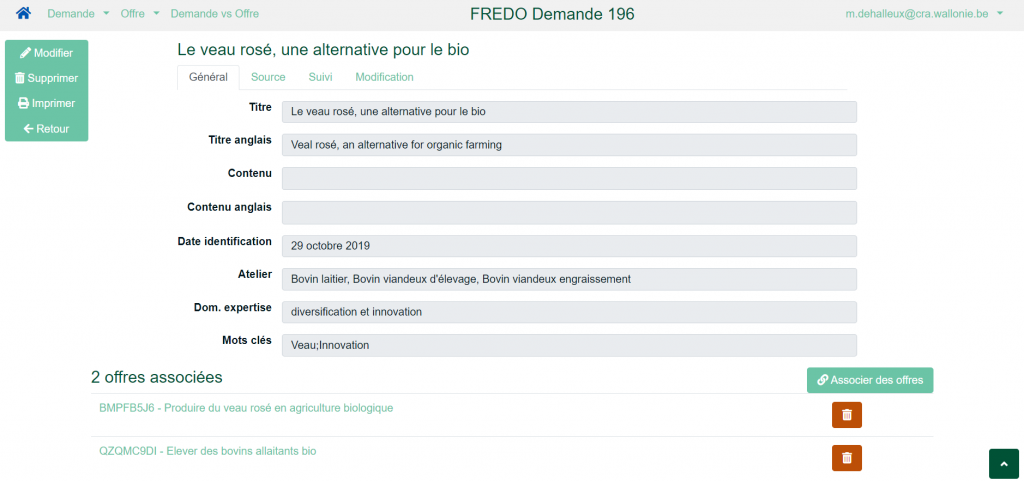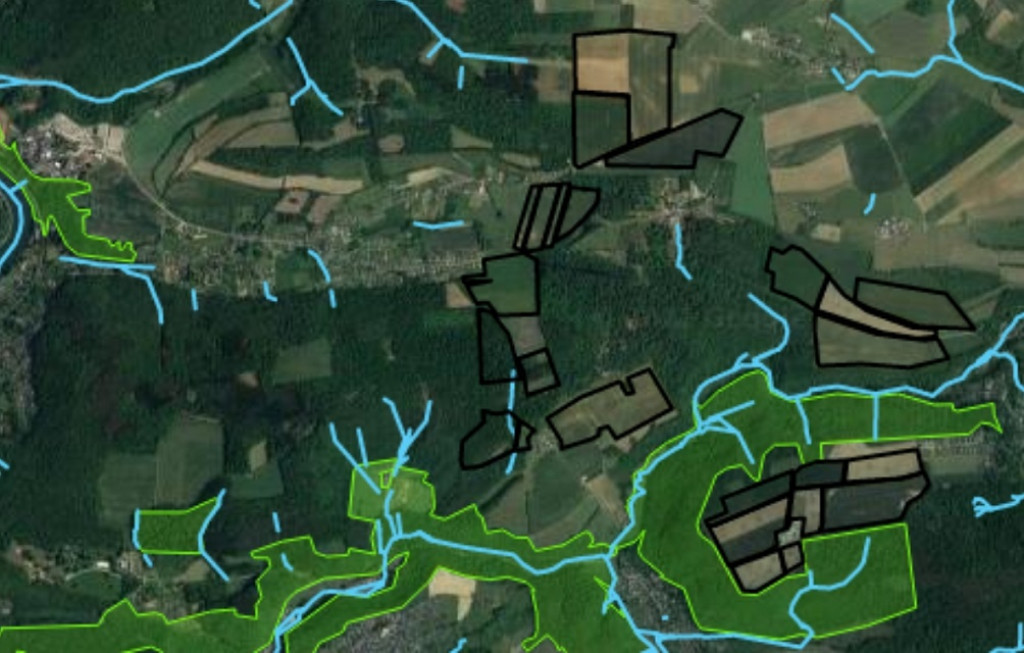DECiDE 2.0 is free of charge and can be accessed via the website. This tool is supported by Walloon research and developed in partnership with the Walloon Air and Climate Agency (AWAC) and management bodies such as the Directorate of Agricultural Economic Analysis (DAEA) and Elevéo. It provides the means of estimating the impact of the agricultural sector according to a harmonised, internationally recognised methodology.
DECiDE users can directly encode data relating to their farms or automatically import a large part of their accounting data via their management organisation, thus saving a considerable amount of time.
Using an easily interpretable visual image available online or in pdf format, farmers can perform a rapid audit of their farm and compare it with other farms of the same type, enabling them to identify potential strategies for reducing GHG emissions. ammonia and energy consumption.
DECiDE takes into account features specific to Wallonia concerning soil, climate, animal performance and food production. The tool can be improved through the measurement of GHG emissions or carbon storage by soils carried out on animals, herds or trial fields. By the end of 2021, owing to the results of the INDIGGES research project (CRA-W), it will also be able to take cultivation and breeding practices into account.
This tool can be used for field crops, dairy cattle, meat cattle and mixed farms. Through the MonoDECiDE research project (DGO3 and CRA-W allowance), reports for monogastric breeding (pigs and poultry) will also be available before the end of 2021.
A consultation with the main users (management organisations and agricultural advisers) and the regional authorities is underway to define a timetable for adding new indicators. These concern, for example, nutrient balances (NPK), calculation of the water footprint, sheep livestock units, etc.
In collaboration with Natagriwal, biodiversity indicators are also being developed on the basis of data already collected by the tool (Agri-environmental and climate measures (MAEC), areas of ecological interest, presence of hedges, ponds, natural areas, maintenance of meadows, etc.).
An initial training cycle in use of the tool, advice to farmers and on-farm monitoring was organised for agricultural advisers in June 2021.
















